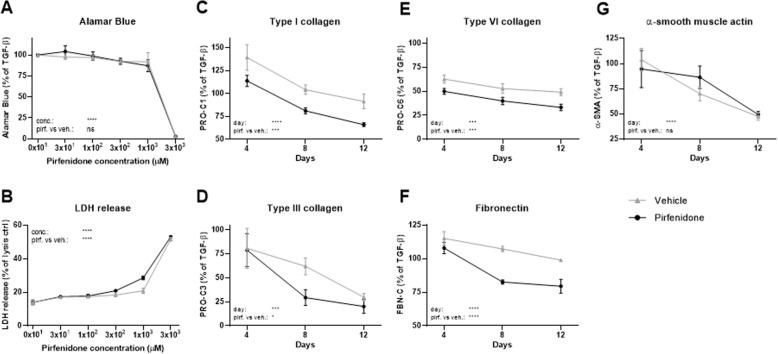Fig. 6.
Pirfenidone reduced matrix protein synthesis but had no effect on fibroblast activation. Lung fibroblasts were stimulated with TGF-β1 and treated with 3 × 101, 1 × 102, 3 × 102, 1 × 103 or 3 × 103 μM pirfenidone or corresponding vehicle (0.03, 0.1, 0.3, 1% or 3% DMSO). a Metabolic activity was assessed by Alamar Blue at day 12 and data are presented as percentages of the TGF-β1 control for vehicle and pirfenidone. b Cytotoxicity was assessed by lactate dehydrogenase (LDH) release at day 4 and data are presented as percentage of the maximum LDH release determined by cell lysis for vehicle and pirfenidone. c-g Biomarkers of ECM synthesis (type I (PRO-C1), III (PRO-C3) and VI (PRO-C6) collagen and fibronectin (FBN-C)) and fibroblast activation (α-SMA) were measured in the supernatant at day 4, 8 and 12. Data are shown for 1 × 103 μM pirfenidone and its corresponding vehicle and are presented as percentage of the TGF-β1 control over time. All data are shown as mean ± SD of 3 separate experiments each with 4 replicates/treatment and analyzed by two-way ANOVA with Sidak’s multiple comparisons test comparing pirfenidone to vehicle at day 4, 8 and 12. ns non-significant; *P < 0.05; **P < 0.01; ***P < 0.001; ****P < 0.0001

